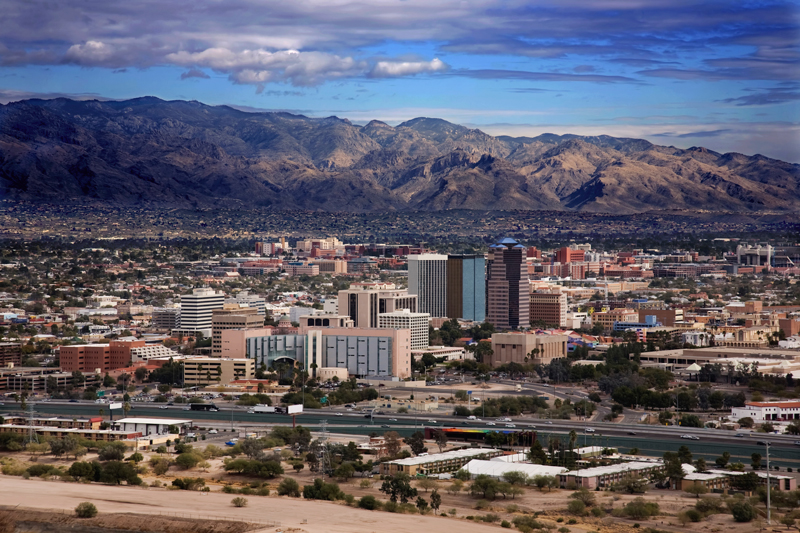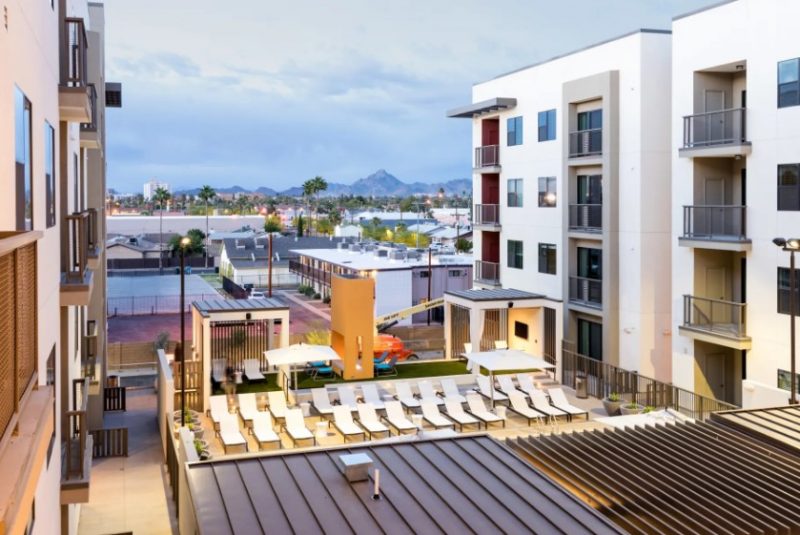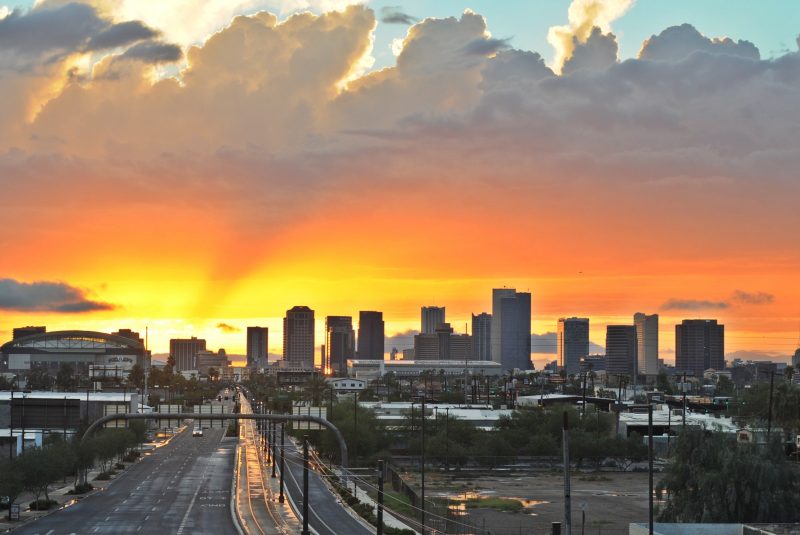Phoenix, AZ
Phoenix is the principal city of the Phoenix-Mesa-Scottsdale Metropolitan Statistical Area (MSA). Also known as Valley of the Sun, or Metro Phoenix, this MSA includes all of Maricopa County and Pinal County containing 67% of the state’s population. The Census Bureau announced in April 2019, that Maricopa County was the fastest growing county in the nation three years in a row. According to the Census Bureau’s 2017 population estimates, metro Phoenix ranked as the 11th largest metro area, with 4,737,270 residents. Its population increased 45.3% from the 1990-2000, compared to the U.S average of 13.2%. Phoenix is one the fastest growing metropolitan areas, gaining nearly 600,000 residents from 2010 to 2017, and nearly 1.4 million since 2000. By 2020, it’s forecasted that Phoenix will become the 4th most populous city in the US; and by 2030, the US Census Bureau estimates its population will reach 2.2 million with a metro area that’s home to 6.3 million.
Leading sectors for job growth include education and medical services (17,200 jobs), construction (15,100 jobs) and professional and business services (12,800 jobs). CBS News and ZipRecruiter recently ranked Phoenix 3rd on top 10 fastest-growing tech cities. In 2017, Money Magazine voted Phoenix 3rd among the nation’s best cities for tech jobs. In 2018, Greater Phoenix welcomed 42 businesses and three corporate headquarters, which represented $1.18 billion in capital investment, and created 8,606 total jobs. Tech jobs continue to funnel into the Phoenix MSA. Tempe has become home for companies such as LifeLock, Insight Enterprises, Honeywell, Microchip Technology Inc., ZipRecruiter and Amazon. Intel recently announced a $7 billion investment project in its neighboring city, Chandler. Other major employers that are attracted to Arizona for the deregulation, competitive tax environment and low operative costs include; JPMorgan Chase, Carlisle Companies Inc, UPS, ADP, State Farm, Wells Fargo, Boeing and PetSmart.
Phoenix is home to approximately 564,000 apartment residents. According to Bloomberg, an average of 200 people migrates to the Metro Phoenix daily, creating a demand for workforce and affordable housing. Phoenix has seen substantial new development activity, but the demand continues to outpace the incoming supply. According to WeAreApartments and National Apartment Association, Phoenix needs to build an estimated 11,000 new apartment homes each year to meet the projected 150,302 new apartments demand by 2030.



Phoenix, AZ
Phoenix is the principal city of the Phoenix-Mesa-Scottsdale Metropolitan Statistical Area (MSA). Also known as Valley of the Sun, or Metro Phoenix, this MSA includes all of Maricopa County and Pinal County containing 67% of the state’s population. The Census Bureau announced in April 2019, that Maricopa County was the fastest growing county in the nation three years in a row. According to the Census Bureau’s 2017 population estimates, metro Phoenix ranked as the 11th largest metro area, with 4,737,270 residents. Its population increased 45.3% from the 1990-2000, compared to the U.S average of 13.2%. Phoenix is one the fastest growing metropolitan areas, gaining nearly 600,000 residents from 2010 to 2017, and nearly 1.4 million since 2000. By 2020, it’s forecasted that Phoenix will become the 4th most populous city in the US; and by 2030, the US Census Bureau estimates its population will reach 2.2 million with a metro area that’s home to 6.3 million.
Leading sectors for job growth include education and medical services (17,200 jobs), construction (15,100 jobs) and professional and business services (12,800 jobs). CBS News and ZipRecruiter recently ranked Phoenix 3rd on top 10 fastest-growing tech cities. In 2017, Money Magazine voted Phoenix 3rd among the nation’s best cities for tech jobs. In 2018, Greater Phoenix welcomed 42 businesses and three corporate headquarters, which represented $1.18 billion in capital investment, and created 8,606 total jobs. Tech jobs continue to funnel into the Phoenix MSA. Tempe has become home for companies such as LifeLock, Insight Enterprises, Honeywell, Microchip Technology Inc., ZipRecruiter and Amazon. Intel recently announced a $7 billion investment project in its neighboring city, Chandler. Other major employers that are attracted to Arizona for the deregulation, competitive tax environment and low operative costs include; JPMorgan Chase, Carlisle Companies Inc, UPS, ADP, State Farm, Wells Fargo, Boeing and PetSmart.
Phoenix is home to approximately 564,000 apartment residents. According to Bloomberg, an average of 200 people migrates to the Metro Phoenix daily, creating a demand for workforce and affordable housing. Phoenix has seen substantial new development activity, but the demand continues to outpace the incoming supply. According to WeAreApartments and National Apartment Association, Phoenix needs to build an estimated 11,000 new apartment homes each year to meet the projected 150,302 new apartments demand by 2030.
Construction Development Projects
The Link: 3-phase development featuring a 30-story tower with 252 market-rate apartments and 22,000sqft ground floor retail
Lincoln Union: 92,202sqft multi-tenant, creative office complex
Block 23: Mixed-use, 1,000,000sqft project with Fry’s Food Store, 330 apartment units and office space
The Battery: 278-unit mixed-use project apartments and commercial space.
Portrait at Hance Park: $118 million 32-acre 2-building multi-family redevelopment.
Welnick Arcade Marketplace: 11,000sqft newly renovated restaurant and retail space.
